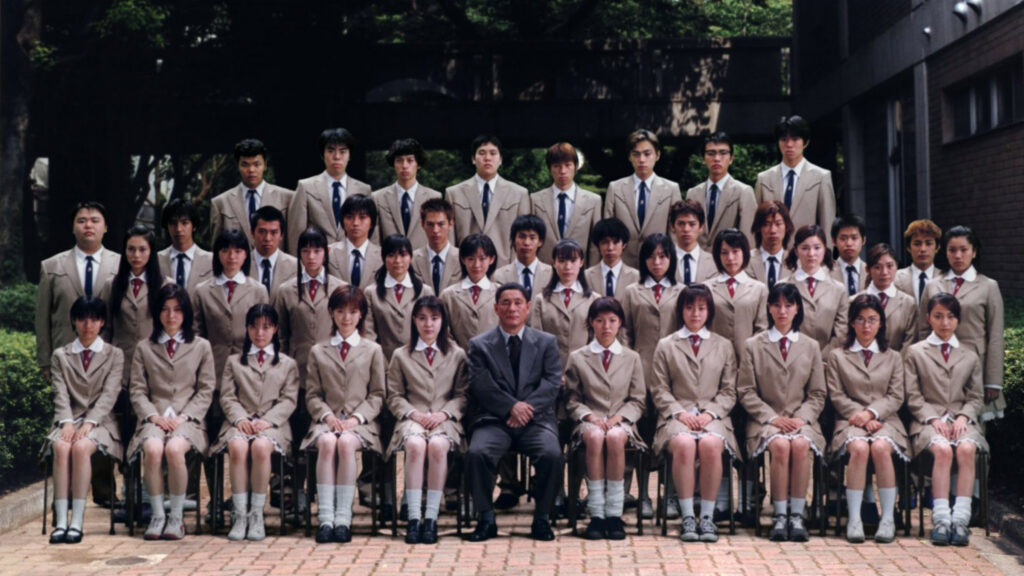This past September, Yoshihide Suga became the 64th Japanese Prime Minister, following the resignation of Shinzo Abe, who left the position in August due to an illness. The Japanese have the oldest monarchy in the world, with the line of succession dating back to the 7th century. However, since 1947, the power of the Japanese monarchs has significantly decreased. Following World War II, the United States occupied Japan with the primary goal of creating a democratic system in the country, a plan outlined in the U.S. Initial Post-Surrender Policy for Japan. In spearheading Japan’s democratization, the United States focused on formalizing several political parties, the parliament and the prime minister. And as a result, Japan’s 1947 Constitution permanently changed the emperor to a figurehead position, making the Prime Minister the most powerful role in the country.
In contrast to the affluent roots of Shinzo and several other prominent Japanese politicians, Prime Minister Suga was raised by parents who were strawberry farmers in the country’s north. In a country familiar with bureaucratic leaders from influential families, some citizens see Suga as an anti-establishment political figure that can relate to the struggles of the common people, something they have explicitly called for in the last 60 years.
The ongoing and evergreen struggle in Japan between its monarchical and historical political structure and its ever-growing modern citizenry is a common theme in many forms of art, entertainment and literature detailing the country’s sociopolitical environment.
However, there is perhaps no stronger allusion demonstrating these key themes dominating Japan’s current political scene than in the 2000 Japanese thriller film “Battle Royale.” The movie, created by Kunji Funkansuku, illustrates the desires of Japanese citizens to be heard by politicians and, through entertainment, represents the frustration many citizens feel toward the government, with themes of social deviance and government defiance permeating the film.
The film begins with the Japanese government passing a law known as the “BR ACT” after a major economic recession. This act, designed to allow the government to contain and control the rebellious Japanese youth, forces a different class of 40 students to participate in an annual competition where they must fight to the death.
Battle Royale was originally adapted from a best-selling novel by the same name and two Japanese films that told similar stories. The 1999 novel, written by Koushun Takami, was inspired by the author’s childhood in 1960s Japan when the All Campus Joint Struggle Committee, otherwise known as the Zenkyoto, protested the Japanese governmental and institutional push towards mirroring American capitalism in the Japanese collegiate system. The student organization, created in 1948, had different chapters at each university and targeted issues specific to each institution, with tuition fee reductions being their most significant objective. However, by the 1960s, Zenkyoto was calling for systemic changes in the way universities approached academics and how students and researchers operated. They believed that the education system was wrongly managed like a factory. The revolts of the Zenkyoto were met with strong resistance by the Japanese government. This only caused the protesters to become even more aggravated with the Japanese’s constant necessity for control, law and order. The repressive government portrayed in Battle Royale is a dystopian imitation of Japan’s management of the youth in the 1960s. The film is protest art, trying to unpack the oppression and the perceived misdirection of the Japanese government.
Despite Suga framing himself as an outsider, which is a characteristic desired by some of Japan’s general public, his beliefs and actions are not aligned with any anti-establishment rhetoric. Rather, his undertakings are aligned with protecting the bureaucracy.
When Japan descended into mass protests in the 1960s, Suga avoided the movement. After graduating from university, he served as a secretary for Hukosaburo Okonogi of the Liberal Democratic Party (LDP) for 11 years. LDP is based on conservatism and nationalism and is frequently right of its opposition parties. The party’s platform includes export-based economic development, tax reform, privatization of state-owned industries and strong cooperation with the United States, which are direct contradictions to the stances of more left-wing ideologies.
In 1996, Suga became a member of parliament for the LDP. In this position, Suga became closer with soon-to-be prime minister Abe, also a member of the LDP. Abe appointed Suga to serve in his cabinet as Chief Cabinet Secretary. In this role, Suga had a record of trying to manage the bureaucracy. He brought more tourists and foreign workers into Japan, blocked and delayed information to the media at press conferences, and worked effortlessly to protect Abe’s image from criticism in various scandals.
While many Japanese citizens desire a less bureaucratic and dynastic government, politicians like Suga do not try to change the damaging culture in Japan, which dominantly encourages silence in the face of oppression. As a common saying in Japan goes, “The nail that sticks up gets hammered down.” Contrary to the Western concept of individualism, conformity is appreciated and expected. The government’s push for conformity is a product of Japanese nationalism that rose to prominence in the Empire of Japan with the 1860s Meiji government. Confucian leaders ingrained the importance of loyalty to the state. In order to ensure adherence and uniformity, the government sent officials across the country to enforce patriotic behavior. Japan successfully created a centralized government where individual communities had no control over their jurisdiction or laws. Later, in the 1920s, the Taishō and Shōwa governments modernized the meaning of nationalism by competing with other countries for international and regional power; this was done with the intention of making their country more economically successful and therefore encouraging Japanese citizens more patriotic.
Japanese nationalism was and continues to be an initiative of creating and maintaining a unified society by focusing on the unity of culture, politics and a shared understanding of Japan’s history and destiny. This is also a crucial part of the LDP’s mission.
“Battle Royale” demonstrates that this kind of society does not work. Despite the government’s emphasis on togetherness, culturally and politically oppressing the Japanese people led to serious violence, as seen in the 1960s protests. Instead of confronting the political frustrations of the people, Suga, just like his predecessors, does not seem interested in dealing with the desired change.
Looking forward, Suga will have to run again in September of 2021 once his term comes to an end this summer. His success in this next election may depend more on how he deals with the coronavirus and its economic and social fallout, rather than an assessment of his ability to unite the nation after its decades-long social and political turmoil.
With our world in such disarray, inclusion and diversity of ideas in Japan’s political arena is an overlooked issue. In spite of this, the issue of government oppression and strict bureaucracy in Japan is not any less relevant.
“Battle Royale” still serves as an ode to change today, despite being a response to Japanese political issues of sixty years ago. Clearly, modern reform and progress in Japan is stagnant, which begs the question: Will the desired systemic change in Japan ever really occur with Suga in charge?







